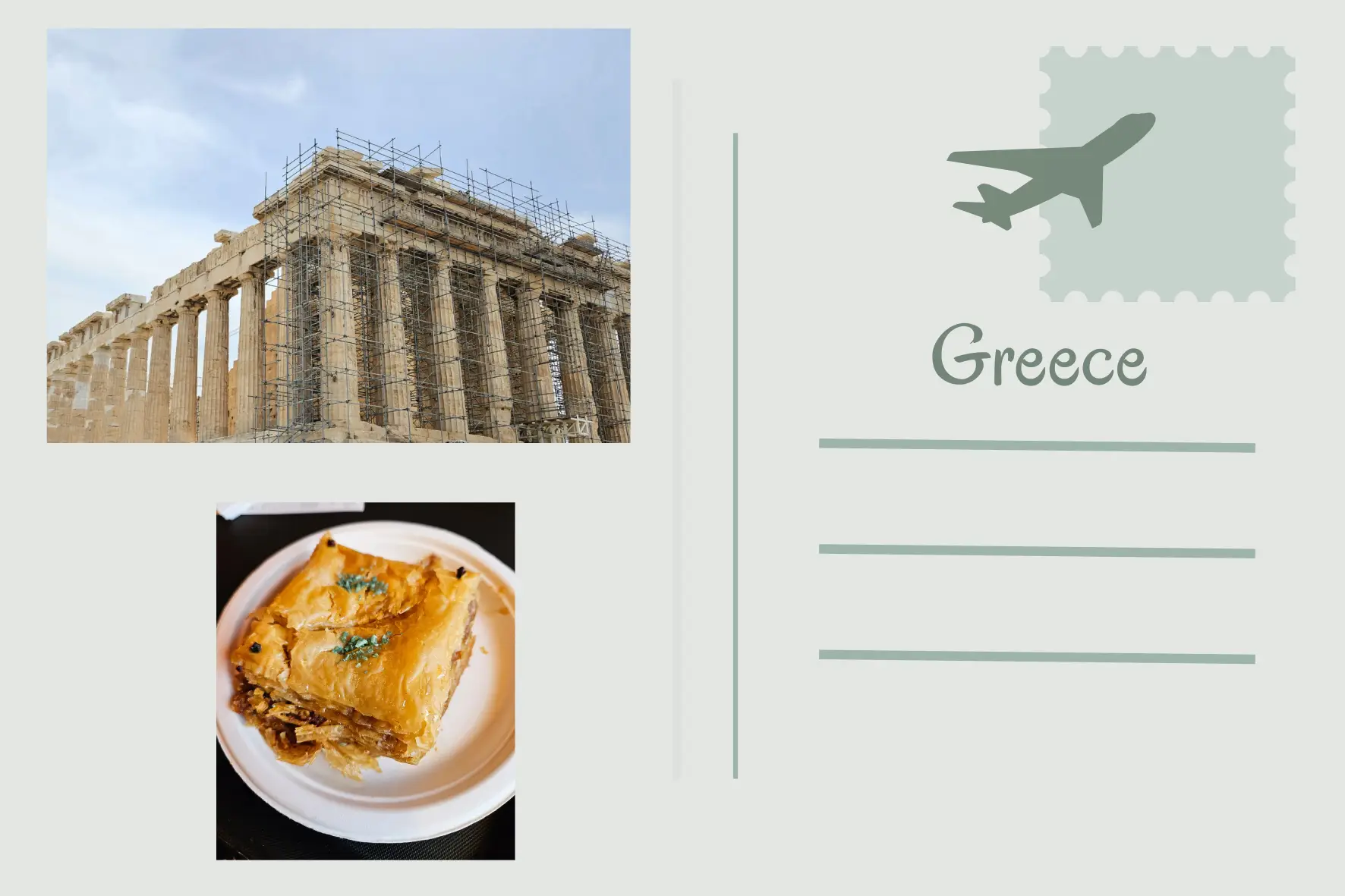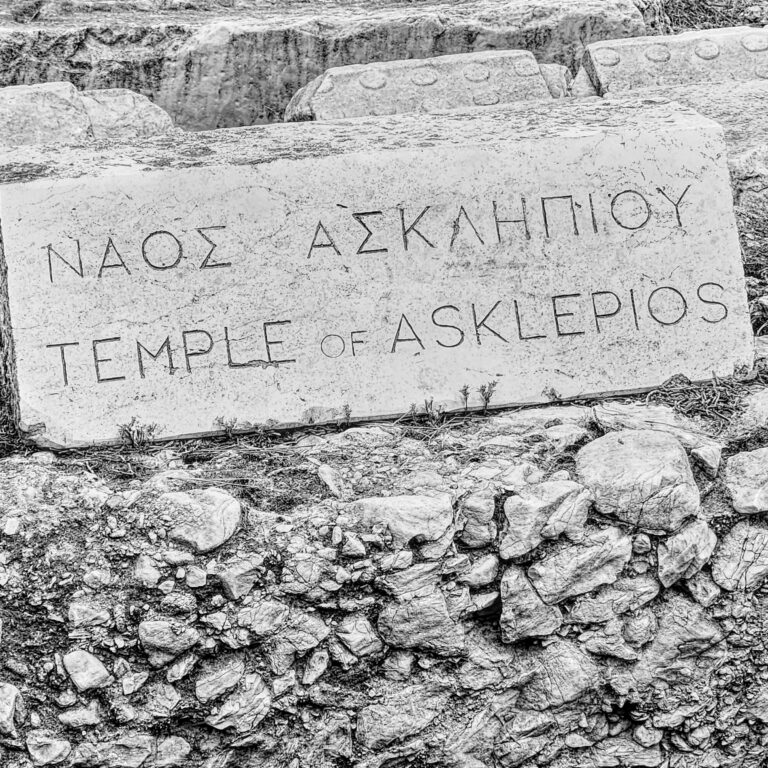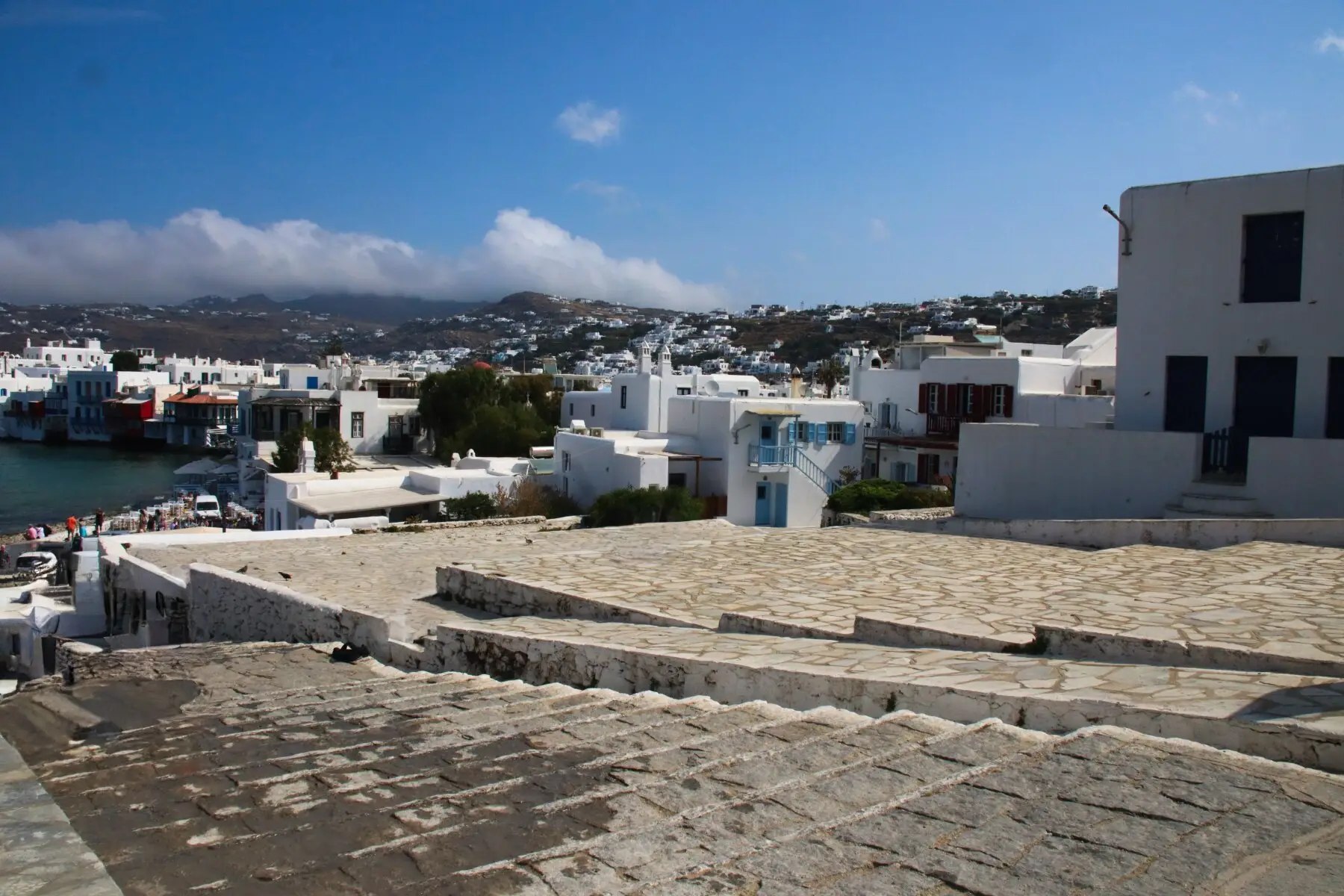Greece

Greece is located in the southern part of Europe. It is renowned for its magnificent history, beautiful landscapes, and pristine beaches.
Often hailed as the cradle of Western civilization, Greece boasts a rich heritage that testifies to its historical significance. Its ancient ruins, cathedrals, and temples are revered symbols of a bygone era, enlightening and inspiring tourists worldwide.
In addition, Greece has a well-established culinary tradition that includes savoury dishes such as gyros, moussaka, dolmades, and baklava.
The country is also famous for olive oil, feta cheese, and Greek yogurt, staples of many Greek diets.
The Greek people are friendly and hospitable and take pride in their cultural heritage.
Keep In Mind

*The best time to travel to Greece is between April and May. It is less crowded and not as hot.
The weather is perfect for walking and missing the summer crowds. Avoid the Summer months of July and August. They usually get uncomfortably hot and are also very expensive.
*Greeks are not good drivers; be careful ( we found that out )
*If you are a coffee lover, you’re in for a treat!!
What To Expect
Language: The official language is Greek. But most of them can speak English.
Currency: Euro (EUR).
Credit Cards & ATMS: You should be able to use your credit card when visiting Greece. However, remember that many people prefer cash for small purchases. ATMS are available in all the cities and towns, and you’ll usually find them near gas stations, shopping centers, and bus and train stations.
Plugs: We use type E power plugs with a standard voltage of 230 V and a standard frequency of 50 Hz.
Safety: Greece is a safe country to visit, but it’s always wise to be cautious. Keep an eye on your belongings, especially in crowded areas, and consider using a secure bag like Travelon. This will help you feel more secure and enjoy your trip without worry.
**The most significant thing to consider when planning a trip is the weather. Could you look it up for the month you want to go?
**Getting Around: Walking or using the bus.
Do While In Greece
Learn a Few Greek Phrases
–Locals appreciate it when you greet them with a simple “Kalimera” (Good morning) or “Efharisto” (Thank you).
-English is widely spoken, especially in tourist areas, but trying Greek shows respect.
Dress Respectfully at Religious Sites
When visiting monasteries or churches, wear modest clothing. Women should cover their shoulders and knees, and men should avoid shorts.
-Some monasteries provide wraps for visitors who need them.
Explore Beyond Athens
–While Athens has the Acropolis and other significant sites, Greece offers stunning islands (Santorini, Crete, Corfu) and lesser-known gems like Meteora, Nafplio, or Zagori.
Try Local Cuisine
–Indulge in traditional dishes like moussaka, souvlaki, dolmades, and fresh seafood.DDon’tmiss out on desserts like baklava or loukoumades.
Respect Siesta Hours
–Many shops and businesses close in the afternoon, usually from 2:00 PM to 5:00 PM, especially in smaller towns.
Use Public Transportation or Ferries
–Greece has excellent ferry connections for island hopping.
-Local buses are affordable and reliable on the mainland and islands.
Bring Cash
–Many smaller shops, cafes, and tavernas prefer cash over cards, especially in rural areas.
Visit During the Shoulder Seasons
–April-May and September-October offer pleasant weather, fewer crowds, and lower prices.
Be Aware of Local Etiquette
–Greet people with a handshake or a smile.
-When giving or receiving something, use your right hand as a sign of politeness.
Respect Historical Sites
–Follow the rules, avoid climbing on ancient rudon’tand do “n’t take “souvenirs” like stones or fragments.
Don't
Rush Your Meals
–Dining is an experience in Greece. Meals can be long and leisurely, often enjoyed with conversation and local wine.
Rely Solely on GPS
–Road signs can be in Greek; sometimes, GPS doesn’t account for small streets or pedestrian zones. Carry a map or ask locals if needed.
Forget Sun Protection
–Greece can get extremely sunny, especially during summer. Bring sunscreen, sunglasses, and a hat.
Skip Smaller Islands
–Famous islands like Mykonos and Santorini are beautiful but crowded. Consider smaller, less touristy islands like Naxos, Milos, or Symi for a more authentic experience.
Drink Tap Water on Some Islands
–While mainland tap water is generally safe, some islands rely on desalinated water. Stick to bottled water there.
Ignore Strikes or Protests
–Strikes, particularly in Athens, can disrupt public transport and schedules. Stay informed about local news.
Be Offended by Directness
–Greeks are warm and hospitable but can also be very straightforward. Don’t take it personally.
Expect American-Style Service
–Tipping is appreciated but not mandatory (5-10% is customary). Service is often relaxed, so don’t expect servers to check in frequently.
Overpack for the Islands
–Narrow streets and cobblestones make rolling suitcases a challenge. Pack light and opt for a backpack or compact luggage.
Underestimate the Heat and Terrain
–Many attractions involve walking or hiking, often in direct sun. Wear comfortable shoes and stay hydrated.


